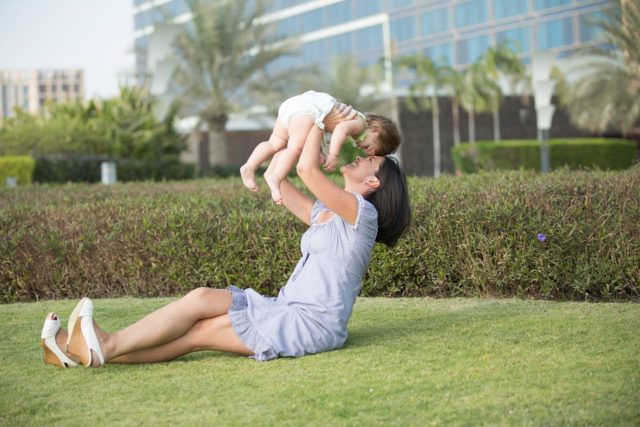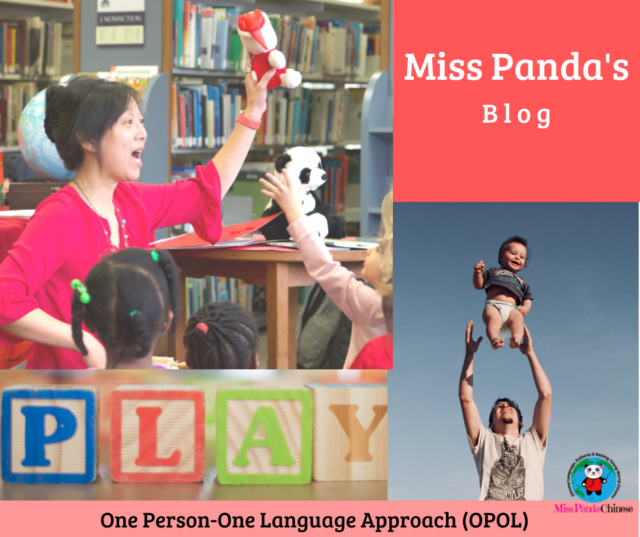one person one language (OPOL) approach

When I met Annie at a party, she was about three years old. Her Dad’s native language is English and her mother’s native language is French. Both parents are fluent in each other’s native language. The Dad only speaks English to Annie and the mother only spoke French to her. She is now in college and she is bilingual in English and French, although dominant in English. Her parents used the one person-one language (OPOL) approach when they first started the bilingual family journey.
I met Justin, a two-year-old at an event. His father is a native English speaker who is quite fluent in Chinese. Justin’s mother is a native Chinese speaker. Justin’s dad speaks Chinese to him so does his mother. However, his Dad told me that he is the parent who also speaks English to Justin if it is necessary. This family uses a version of OPOL that fits their needs at this time.
This approach is suitable for
-
One or both parents who have conversational fluency of a second language.
-
One or both parents who have conversational fluency of a heritage language.
-
One or both parents who are native speakers of their own home country languages.
-
A family that has a child-caregiver who has a high proficiency or is the native speaker of the family’s desired target language. (ex. grandparents, au-pair, educator caregiver) A child
OPOL is a popular approach used with kids who are acquiring two languages at the same time. That means each parent uses his/her own language with the child.
Example #1, the father speaks English and the mother speaks Mandarin.
Another example, the caregiver speaks Mandarin and the parents speak English.
Example #3 (a variation), the grandparents who live in the same household speak Mandarin, and the parent with conversation proficiency also uses some Chinese.
Parents find this approach appealing for raising a bilingual child at a very young age. However, as the child engages in more community activities and enters school some questions and problems appear due to the balance of the language input of the two languages.
Therefore, there can be a shift in the approach to fit the needs of a family.
Do you find OPOL, One Person-One Language approach works with your family? Are there any concerns you have if you have adopted it?
Happy Thanksgiving to you and your family! We talk about “thank you” and “I am grateful for…” in the latest Playful Chinese podcast. I hope you can join in and use these expressions during the holiday season and beyond. Thank you for being a part of this bilingual family community.
Read more in Teach Your Child A Second Language series:
Start with Songs And Music
Incorporate Everyday Expressions
Have Fun With Games
Create A Routine
Engage The Senses
Keep A Happy Mindset
Image by pixabay
